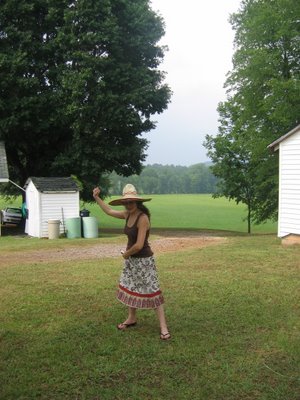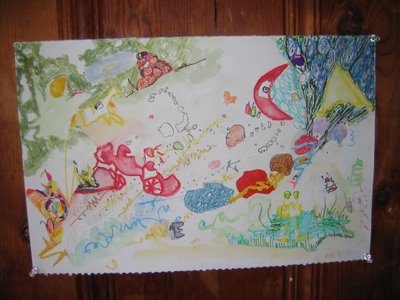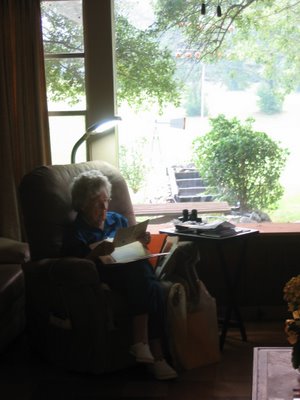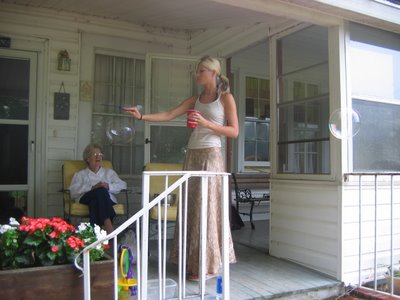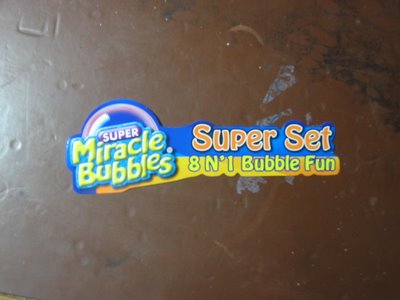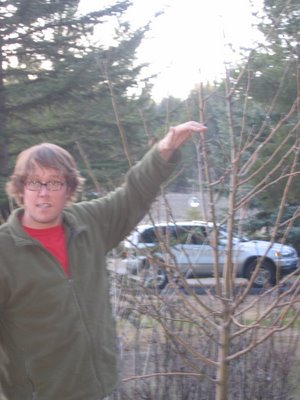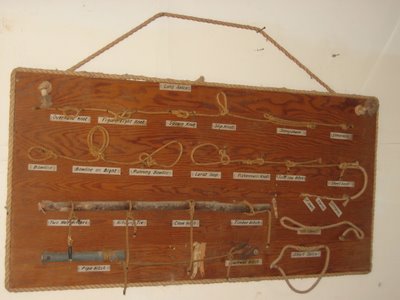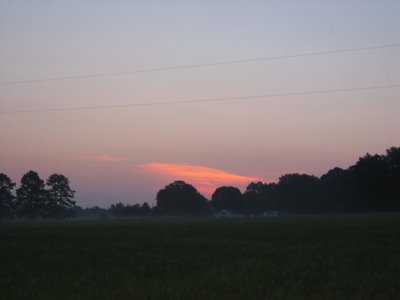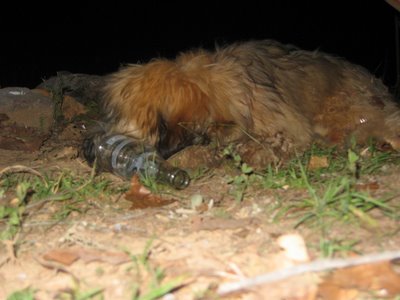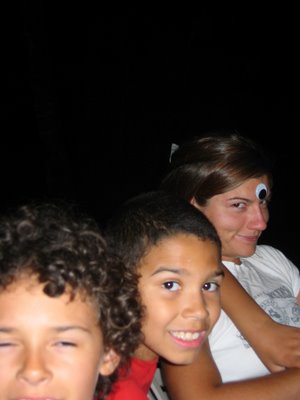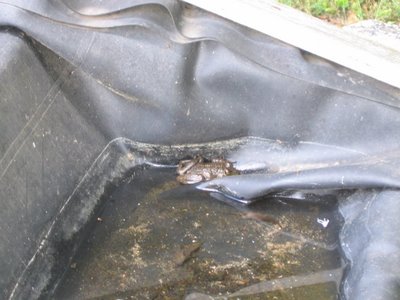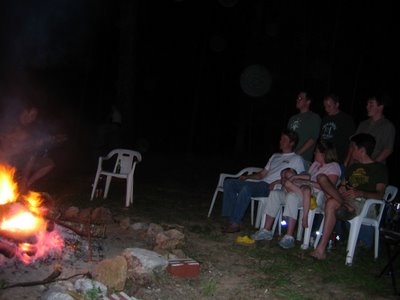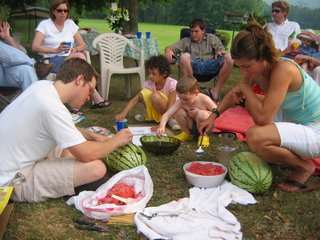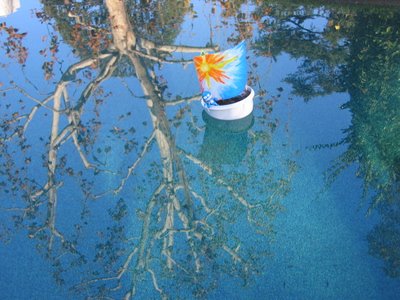
Cole Suttle
December 3, 2003
The largest hurdle for the philosopher is to find a way to explain the existence of both Objectivism and Relativism in a single theory. To somehow link the paradox of separateness and the apparent inability of the subjective experience to be compared objectively. The unification of the part and the whole is the task of the modern philosopher because it is the apparent separateness of individuals that is restricting the coalescing and harmony of the whole. This attempt to search for the meaning of life will be based on the premise that whatever the meaning is it must account for both the Subjective and Objective side of Truth and not exclude either/or on account of trying to keep it clean cut. By focusing on the relationship of the individual to the community I will try to find common ground between the eastern and western ideas of self realization and see if the problem is more one of semantics than ideologies.
The question what makes life worth living? is a fundamental jumping off point for the sincere adventurer looking to find some sense of value or worth in their awareness of their own existence. I use the word awareness because what is value or lack there of but an awareness of something? Going even further, what is it that shapes, creates, unfolds that awareness? Owen Flanagen begins with the question what makes life worth living and examines its assumptions and the problems it brings rise to when accounting for the meaning of life. Though I’m content with the mentality of Flanagen’s conclusions, his choice to attempt a theory that includes everyone restricts him from being very detailed. The way to the meaningful life in one cultural context, China for example, might not sound the same as in another, America for example. Where he lacks practical advice leaves room to look elsewhere, even inside for specific guidance. With that in mind the practical advice cannot be introduced into this paper until after Flanagen’s argument has been laid out.
Beginning from a very base, literal view Flanagen takes living to mean, “time spent not-dead.” (pg. 198) Aware of how reductive this definition is, Flanagen follows the discomforting implications of such a view to hunt down what makes a life lived, lived well even, different from a life spent not dead. What gives life value? What brings about a subjective awareness of truth, be it an objectively reliant awareness or ultimately entirely personal?
Using the example of money, something which has no value until it is assigned by us (the individual and the social setting) to have worth, Flanagen claims that material value comes short of explaining where the meaning of a life well lived comes from. The wealthy Sultan cannot be said to be living a meaningful life strictly on account of his possessions. Happiness, something more personable and closer to the heart of things, does not justify the origin of worth in a life either. Even a life chock full of happy moments doesn’t necessarily validate a life well lived. “Properties of parts do not confer the property of the whole. My parts are small, I am large. Happy times, even many of them, might not constitute a life well lived.” (pg. 199) Though Flanagen does not say the meaning of life is absent of happiness, he is cautious to point out the danger of relying too heavily on the subjective standard of happiness as a measure of the meaningful life. This is the Hitler question and the crux of the Objectivism/Relativism struggle, could Hitler have lived a good life if he was happy and thought he was doing something of personal value? There is something that grossly violates typical human intuitions about resolving to admit Hitler lived a good life because people simply aren’t willing to trust their guts.
What then, if material measures have value only to the extent it is assigned to them, and strictly subjective scales of happiness appear too vague and dangerous to be the end all aim, gives life meaning? Where is the middle ground? Flanagen argues that though Happiness is commonly thought of as a crucial component to the good life, there must be something else that validates living a life of worth. In an effort to link the western idea of individualism with the eastern philosophy of transcendence, Flanagen claims it’s the finding and creating of an identity and the expression of that identity that is the aim of the life lived opposed to the life merely existed. It’s one thing to claim life has meaning in the discovery or invention of an identity, followed by the expression of that identity, but how does one go about doing so? Flanagen chooses to speak in broader terms so as not to alienate the capacity for only certain types of self’s to fulfill this action, but falls short of providing the practical advice people need. Though this is intentional on Flanagan’s part, what good is a theory about the meaning of life if it’s not applicable to everyday people here and now? I’ll leave that until later.
Flanagan argues that though self and self-expression are not all that is needed for the meaningful life, they are indeed necessary. “If something-if anything, that is-is necessary for a life worth living, it is this: that I develop an identity and that I express it.” (pg. 200) But how does one go about developing an identity? Flanagen argues that it is as much the community as it is the individual that allows for both the creation and the expression of the self. To find an identity and express it requires a social canvas, even for the aesthetic monk who decides to leave the social structure for their identity, because there must be socially established expectations in order to transcend them.
After establishing that it is the creation and expression of an individual self within the context of a communal group of selves that gives meaning to life, Flanagen goes on to defend the reality of individual selves, or subjects as he refers to them, at all. This is where he bucks up against the Buddhist philosophy of no self. The eastern idea being that suffering exists only because we falsely identify with our self, and thus believe that when Cole Suttle is hurt I am hurting too. But why think there are no subjects? Flanagen asks, then breaks the arguments into three: the metaphysical, the sociological and the developmental understandings of what the self, the individual subject really is or isn’t. (pg. 201)
The metaphysical claim is that I am merely a set of eyes, but the vision and the ability to see is not my own. I am merely a “location” through which the infinite complexities of the universe collide for a moment’s awareness over and over again. The sociological argument claims that “I” am merely a schizophrenic actor living out a script society wrote for me. “I” exist only as the meeting or falling short of the expectations my community provides for me. There are only parts, but no legitimate middle sphere of unity that ties my “I” to anything separate, stable and distinct. The developmental perception of “I” is the old clichÈ that nothing is real but change itself. Any perception of myself as an individual, separate from the whole whose boundaries I cannot see, is merely an illusion. I am constantly changing, mind body and soul, and so to claim there is a representative center somewhere is false. Who I am now is not who I will be in five years, or whom I was five years ago, therefore I as an individual must not exist.
After laying out these arguments against the “Death of the Subject” as Flanagen calls them, he proceeds to slyly portray the assumptions each argument makes but ultimately don’t prove much of anything. (pg. 201) His personal strategy (because all we have in the end are personal strategies), is to accept that yes, subjects and individuals do change. They are always changing, on levels and planes beyond the everyday dimension of existence people are commonly aware of, but that hardly proves the false existence of individual subjects. As for the social role he admits this is true to an extent because before the individual gains control of their self-expression they have limited powers of free will. Growing up for instance, people merely fulfill roles society has for them without being aware of what they are really doing. But “being constructed hardly makes something into nothing.” (pg. 201) This argument merely shows that some are sheep and others are herders, and that there is a process of transition somewhere between those two that gives life meaning. As for the metaphysical argument, Flanagen draws on the assumption that to serve as a set of eyes, a point of awareness, is the effect of a cause, but every effect in turn sets off another cause, and thus another effect. So even if the subject is a constructed prism, it is fulfilling it’s instinctual desires actively, therefore setting off ripples that will in turn shape other “locations” etc. “Furthermore, the fact remains that evolution has resulted in the existence of organisms that have temporarily extended lives and are self-organized and self-moving in certain well understood ways.” (pg. 202) The direction of this movement is the concern, how do we know what’s moving in the best direction? Is it this movement that distinguishes the life lived from the life spent not dead?
Once Flanagan has safely secured the assertion that subjects and selves indeed exist on their own account, he has branched off from the Buddhist perspective that there are no selves, only constructed illusions of separate pieces of the whole. What Flanagen goes on to do is test the worth of a subjective value that exists as a result of an objective shaping, i.e. the village. He gives two scenarios, one of the belief in an omnipotent, perfect, all-loving, all-powerful Western sounding God vs. the almost Gnostic idea that the original force was an irrational one that wound the clock just before the big bang and then stepped aside afterwards, letting creation account for itself. Though these stories appeal differently to different groups, Flanagen is not content with their conclusions. They leave only an either/or option, not a theory that explains the existence of both an objective and relativistic perception side by side. To separate truth between individual and the whole is to miss the point.
The problem with the omnipotent God story is that it passes the buck by saying whatever happens is God’s decree and the individual has little say or value in the outcome or the shaping of the outcome of something so meager as I. This is why I find it strange when believers in this idea still claim free will. As if they are able to pick and choose what they are responsible for and not lay claim when bad things happens. As for the second, reductive scenario, Flanagan pulls in Nietzche and what sounds somewhat like Sartre in an attempt to take the responsibility away from projecting it onto an unexplainable omnipotent, all-loving, all-powerful God and onto the shoulders of the individual. As an individual, a real self capable of creating and expressing the best and worst of things, it is not the responsibility of some exterior God to make meaning of one’s life. It is the responsibility of the individual to create an identity with which to relate to the world and find value, which in turn is then expressed back into the world. A symbiotic, reciprocal system. This is a very important and self-empowering part of Flanagen’s theory. For the good life it matters very much that the individual apply themselves to their decisions.
Flanagen’s conclusions champion the meaning of life being in the relationship of the individual to the whole- other individuals or a more transcendent God. Ultimately value and worth come from the creative rendering of an identify using what the individual experiences internally as a result of the external world, but this is not to strip away the existence of the value of what the Self has to say. It matters very much what I say and do and want. (Flanagen pg. 204) Though rough an unrefined, Flanagen manages to fit the role of both the objective and the relative truths into a single idea for the meaning of life. He places, like Sartre’s existentialism, the responsibility for creating a life worth living on the individual, daring them to trust themselves and recognize their own identity, and then calling on them to express that identity creatively back into the big pot of existence. He paints the picture of an evolutionary community that feeds off each other, organizing and then reorganizing again and again as more material to be creatively painted with comes into awareness. Though he validates the worth of the community as w hole, he does not allow that to take away the value of the individual subject Science is an example of such unfolding truths that can be applied to the before to create an after, more aware perception. What is important is to remember science is only a tool that one day will need to be discarded for something that transcends it. Because there is a flow, a direction of movement in this evolutionary picture, it leaves open if not downright encourages the possibility of transcendence. “This is a kind of naturalistic transcendence, a way each of us, if we are lucky, can leave good-making traces beyond the time between our birth and death. To believe this sort of transcendence is possible is, I guess, to have a kind of religion.” (205) Is he saying humans are inescapably religious? What sort religion is he talking about that includes everyone? And luck, what sort of luck is he talking about?
One thing Flanagen seems to have constantly in the back of his mind is speaking in terms broad enough to account for everybody, everything; Nietzcheans, Libertarians, Buddhists, and Benedictines. (pg. 200) This choice, though productive in that it ascertains a.) the reality of individual subjects not dependent or shaved off some Higher, all inclusive single Soul, and b.) empowers the individual to trust all facets of themselves and the weight of responsibility to do so, ultimately lacks the practical advice many are looking for. How does one create an identity? How does one create the best identity? How does one express that identity? But before we delve into the practical advice of other philosophies, let us scrutinize Flanagen’s assumptions more closely.
The philosophy most closely related to a self-transcending meaning of life is the Buddhist philosophy which rears around simple statements such as, “so self, no problem.” (Kornfield pg. 12) Flanagen claims that his naturalistic transcendence theory incorporates the Buddhist ideals as well. Does it?
The Buddhist idea on how to live the meaningful life is to lose any identification with the individual self, Cole Suttle in my case, and fall into a connection with the larger nature of things, Buddha nature. Buddha Nature is the underlying fabric of all existence and as humans we become disconnected with this nature and suffer as a result. This philosophy is based around the almost Hedonistic idea that the best life is the life lived without suffering. That it is suffering which holds back the good life. Susan Wolf would disagree with this because she believes it is indeed the characteristics and variety of different selves that make life rich and worth living. This is why the Saint that gives up everything is only so appealing to normal, everyday people. To focus completely on becoming numb to the world, as it appears from some angles Buddhists do, is to miss the point of life she says. It would seem Flanagen might agree with Wolf as well in that he believes life is meant for expressing our selves as opposed to attaching to something established and hiding under it as giving your life meaning, when in fact its meaning is merely being fed to you. How then, can Flanagen claim to account for Buddhist philosophy in his theory and agree with Wolf at the same time?
There is a bit of word play when one reads Flanagen’s definition of the meaning of life to be for the self to identify with an identity, and the Buddhist idea that any identification with the self is the root of suffering, and thus the restriction of the best life. What are the ends of these two ideas? For Flanagen he is aiming at self-expression, a broad dynamic goal that does not end and is not achieved absolutely and finitely. For Flanagen it is a pure developing not a possessing that is important in the good life. It varies from identity to identity, but is no less more real or less real for those who do achieve such a state. For Buddhists the aim is enlightenment, which I dare say is synonymous with omnipotence, a transcendence of individual worries and restrictions and the dropping down into the void where all is said to begin and return to.
The reason Flanagen’s theory can coexist with Buddhist philosophy is because he doesn’t get explicit about what sort of identity need be created, only that creativity plays an important role. What would Wolf say about a person who does their best to emulate the saints in an attempt to create their identity and transcend their earlier limitations and doubts they have that the life of the saint is possible for them? Is Wolf a pessimist? It would seem the Buddhists too revolve their struggle for enlightenment around the problem of dualism as much as Flanagen does. To achieve that state they work towards tearing their awareness away from their individual characteristics and identifying with an omnipotent self, which they don’t call self at all. It is a stripping away of what they consider to be the illusion of our identity and reconnect with Nature and their place in it. Is the Omnipotent self an identity to be reached, and then expressed omnipotently? Can we, looking out from our uncarved, rough self centers of awareness pretend to know how an omnipotent self expresses itself?
This I feel is the link between Buddhism and Flanagen’s more cautious western self-realization philosophies. This is the unification of the two examples Flanagen sets up between the idea of an all powerful, omnipotent God and some sort of scientifically measured original force that set the world in motion. Perhaps the meaning of life is to emulate the God/Nature idea, not fall back and rest in the myth of his perfect existence. Perhaps God/Nature is not looking for the sheep that want to be led and not have to worry about their own sense of value, instead God/Nature wants those people willing to jump in the trenches and fight for a better way using the gift of themselves. The transcendence Flanagen talks about is a sort of surrender to the identity that the self winds up finding. If that identify is so large and all encompassing that it’s self-expression is to become more of a channel than a conscious, individual creator, then the meaning of life is indeed to surrender to the flow. But the flow of what? What channels through the omnipotent self?
Again, what is lacking is the practical advice one might follow to achieve this ideal state. For westerners the Buddhist ideas of desireless living and self-restraint may seem foreign and too unnatural to lay much credence in. But if we look to the ancients, Epictetus’ Guide for Living with peace of mind begins to ring a bell as possibly being the secret guidance that also allows for a link between the internal and external world. A mindset, an attitude to approach life with that encompasses the whole and doesn’t invalidate the variety of differences within it.
What does Epictetus tell us is the best way to live life? The underlying staple of his philosophy is to adopt the mentality that it is only worth worrying about those things we can control. “In our power are opinion, movement towards a thing, desire, aversion, and in a word, whatever are our own acts: not in our power are the body, property, reputation, offices, and in a word, whatever are not our own acts.” (Epic pg. 11) In the dualistic existence it is easy to become dismayed by bad fortune or ill acts by others, but to sacrifice inner sanctity for emotional reactions to those sorts of things is to forego one’s personal power to control the way they relate with the world. As Flanagen says, “If meaning and worth come with relations of sorts, perhaps in the first instance to other selves, but possibly also to nature, to work, to oneself, then perhaps we are wisest to look for ground of meaning and worth in this life- in relations we can have during this life.” (Flanagen pg. 204) The meaning of life for both these philosophers is in the way the individual creatively creates a relationship with the whole through the Medium of their Self; In the process of building, shaping and living of this relationship between the part and the whole value is found.
“Seek not that the things which happen should happen as you wish; but wish the things which happen to be as they are, and you will have a tranquil flow of life.” (Epic. Pg. 16) But is to surrender to the flow not a leap of faith into the value of that which is flowing? This God/Nature phenomena? The willingness to worry only about what is within the subject’s control, and accept on faith that which is outside of it has enough value to be surrendered to is the “kind of religion,” Flanagen ultimately winds up deeming necessary for his naturalistic transcendence theory. The decision to have faith though is arrived at here pragmatically and not on account of Dogma. Much the way Tolstoi rationally opted out of religious faith his entire life and then wound up deciding after living with the peasants that it is rational to believe in the irrational possibility of faith. To not believe offers nothing but the absence of tranquility, and how can the self fully function and develop in a constant state of unrest? It is almost as if to believe is a natural force in the world that offers advantages not believing can’t. Perhaps belief is the alchemical magic element of the meaningful life.
To recap, and to have a space for ME in Philosophy, I’m going to risk inserting my own words in this paper about what I have learned and come to believe to be the meaning of life. The reality of perceived dualism is the opening quandary that must be reconciled in what I believe is a true theory about the meaning of life. Truth must account for everything, objective or subjective, even if I am incapable of seeing the entire canopy from here. How then, does a person go about reconciling this in their journey for purpose and meaning? I rationalize thus:
Because there appears to be no scientific way to measure and compare Relativist truth with Objective truth, I take on the mentality of Epictetus and resolve that I can only be expected to worry and be held accountable for that which I can control. Though this sounds relativist, it’s not because I do not discount the reality or value of objective truth. What I’m saying is that because the only way I’m capable of accessing Objective truths is through my subjective experience, I must begin by fully tuning my Self before I can trust what I see on the outside. Flanagen draws on the importance of seeing the value of both the part and the whole. The analogy I use is the body. The Subjective meaning of the liver is different than the Subjective meaning of the stomach, or the eyes or the lungs etc., and yet the objective meaning of myself as a whole exists too and requires all of my parts to operate in their own way in unison with one another. I believe it exists because my body is what I travel and associate my self with, though perhaps the belief that I exist at all is a type of religion. That is fine with me because I arrived practically at this conclusion. If I am ever to find an identity and express it I have to start here developing my relationship with the whole.
While using the body as a microcosm for the rest of the world is a wonderful way to fit the objective/subjective schism into a comprehensible image, the meaning of life goes further. What appears to have happened in this world, especially with the advent of the scientific method, is that Truth has been broken down into bits and pieces. Scientists have tried to isolate cause and effects, tried to smooth out the symptoms, but in general have lost sight of the value of a whole truth as opposed to chunky pieces of truths only. In an effort to map out linear cause and effect diagrams the parts have lost communication with each other, undermining the value and vision of the whole. The meaning of life is to find a way to fully identify with my Self, to bring the body, mind and soul into harmony with one another, and then from there, I’m faithfully guessing, to drop into the flow of things. I cannot promise you that when you are fully Whole and communicating with all your parts again, Truth will be what you or I see from here in our disconnected selves. I believe that shouldn’t matter because of course the world will look different when I am in full control of my observation tank, because my current view of the world is in part of result of that tank. Until then my perception of the best and most meaningful is handicapped, but I’m willing to work with what I’ve been given and not pout about wanting more or not having enough. As Socrates said when asked why he was a great man, “I’m not a great man, I’m simply aware of my own ignorance.”
So what then is my practical advice? Dare I say to follow one’s intuition? Is intuition not the subjective/objective force in the universe that allows the person to be plugged into the whole through their parts? Is it too dangerous to suggest everyone follow their hearts? So as not to sound self-righteous this is where I resolve, instead of trying to defend what I have found on my own path, to dare you to get started own your own. The world, God/Nature, is alive and aware just as we are. As you begin to fully communicate with all parts of yourself again the rhythms of the objective syncopate with your subjective experience and the individual awareness begins to pick up on the vibrations of the outside/inside worlds. As this happens, it is my faith and partial experience, the walls and barriers of myself and the incongruities that keep me separate from you will fade away and transcendence will occur. What the world will look like from there is limited only by the depth and beauty of our collective imaginations.
Personally, the greatest piece of evidence I find for believing that there is an innate and beautiful natural drive to transcend ourselves is when I see a child with rotten parents turn out better than the people who raised them. When a child, raised by drunk and abusive parents, in poverty, in a vacuum of Love, still manages to develop a heart so big he has more love than his parents combined I see there is something enchanting and encouraging that from a lack of love comes a flood of love. Is not this the lesson of the Bible? Does not the wrathful, vengeful God of the Old Testament have some sort of midlife crisis by way of returning as his son Jesus, who preaches love they neighbor and turn the other cheek in the New Testament?
Finally I want to remind you that whatever you think of these philosopher’s, or my ideas, they are indeed only ideas; theories created out of the limitless capacity of creativity and reason by other subjects. If you disagree, trust your intuitions and chart your own path, but get to know yourself before you make too many final decisions. Learn from your mistakes, have faith in the untapped powers of the universe that transcend our individual gripping about who can or can’t be trusted. You have to learn to trust yourself first. If you want a theory that applies to everyone it needs to be loose but not reductive. Intuition serves this example. And though it is true people are born with different advantages and disadvantages, some are smarter, some are more beautiful and some are born into wealthy families, what is the one thing that transcends all these things? What is the one thing that does not require anything of the individual to have access to or experience? Love. No matter how dumb or ugly a person is I dare say everyone has the capacity to love or feel loved, if only for a moment. But the moment can be built upon and with training can be sustained. In the end there are so many theories I don’t feel it can be expected of us to find the one and only. As Dostoyevsky said, “Thou shalt love life more than the meaning of life.” Theories aren’t worth anything unless they carry you to a place that makes you and the world better connected, a fuller now. Love is the one universal force that has the ability to cut through every individual barrier, illusion or not, and still be experienced collectively.
